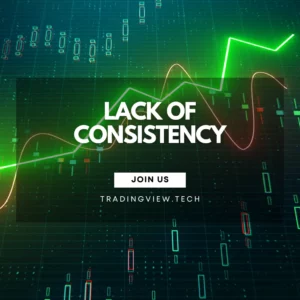Trading is not just about analyzing charts, recognizing patterns, or following economic indicators—it’s a mental game where emotions play a crucial role. Two of the most powerful emotions that influence traders are fear and greed. These psychological factors can dictate decision-making, often leading to costly mistakes that derail even the most well-planned strategies. Fear causes hesitation, panic selling, and an inability to seize profitable opportunities, while greed pushes traders to overleverage, hold onto positions for too long, or ignore risk management. Understanding how these emotions affect trading is the first step toward mastering them.
Successful traders recognize that the financial markets are unpredictable, but their emotional responses can be controlled. Without emotional discipline, even a solid trading strategy can fall apart under pressure. This is why trading psychology is just as important as technical or fundamental analysis. Those who can detach their emotions from their trades have a significantly higher chance of long-term success. But how exactly can traders achieve this level of control? The key lies in identifying how fear and greed manifest, understanding their triggers, and implementing strategies to mitigate their influence.
By developing a structured approach to managing emotions, traders can transform their mindset, making rational decisions instead of emotionally driven ones. This article delves into how fear and greed affect trading behavior and provides practical strategies to help traders maintain control. Let’s start by exploring how fear influences trading and what can be done to prevent it from sabotaging success.
The Role of Fear in Trading: Identifying Triggers
Fear is a natural response to uncertainty, and trading is filled with uncertainty at every turn. The fear of losing money, missing out on opportunities, or making a wrong decision can paralyze traders, leading to poor execution and suboptimal results. Fear manifests in different ways, and recognizing these patterns is the first step to overcoming them.
One of the most common types of fear in trading is the fear of loss. Traders often hesitate to enter a position because they are afraid of losing money, even if the setup aligns with their strategy. This leads to missed opportunities and frustration. On the other hand, some traders hold onto losing trades for too long, refusing to exit because they fear realizing a loss. This results in even greater financial damage as losses accumulate.
Another significant fear is the fear of missing out (FOMO). This occurs when traders see a market move in a particular direction and impulsively jump in without proper analysis, fearing they will miss a lucrative opportunity. FOMO-driven trades are often emotional and irrational, leading to losses when the market inevitably corrects. Traders who constantly chase price movements instead of following a disciplined approach tend to make hasty decisions that work against them.
Several factors trigger fear in trading, including past experiences, market volatility, and external influences like news or social media. A trader who has recently suffered a major loss may become overly cautious, hesitating to take new trades out of fear of repeating past mistakes. Similarly, sharp price swings and unpredictable market conditions can amplify fear, causing traders to second-guess their strategies. Social media and financial news can also contribute to fear by spreading panic or hype, leading traders to react impulsively instead of relying on their own analysis.
Understanding these fear triggers allows traders to take control of their emotions rather than letting their emotions control them. The key to overcoming fear lies in developing a structured trading plan, practicing risk management, and building confidence through experience.
How Greed Impacts Decision-Making and Risk-Taking
Greed is one of the most powerful emotions that can derail a trader’s success. While fear often causes hesitation and indecision, greed can lead to overconfidence and impulsive decisions that put a trader’s capital at risk. At its core, greed is the desire for more—more profits, more wins, more than what is necessary or reasonable. In trading, this manifests as taking excessive risks, overleveraging, or holding onto winning positions for too long in the hope that the market will continue to move in the trader’s favor.
One of the most significant ways greed impacts trading is by encouraging traders to take on larger positions than they can afford. A trader who is driven by greed may ignore risk management rules and place trades with excessive size, believing that the next trade will be a winner. When markets become volatile, this behavior can quickly spiral into large losses, as the trader’s capital is tied up in risky positions that aren’t properly hedged.
Greed also leads to the temptation to hold onto profitable trades for too long. Traders who are driven by the desire for more gains often delay taking profits, hoping that the market will keep moving in their favor. However, markets can be unpredictable, and this mindset can lead to a reversal in price, eroding gains and sometimes resulting in losses.
Greedy traders are also more likely to engage in overtrading, taking positions in the market even when their strategy does not warrant it. Instead of waiting for the ideal setup, they may jump into trades impulsively, driven by the desire to capitalize on every potential opportunity. This constant action can quickly lead to burnout and poor decision-making, as the trader becomes emotionally exhausted and disconnected from their original strategy.
Ultimately, greed blinds traders to the reality of risk, leading them to ignore warning signs and make decisions based on emotion rather than logic. Learning how to recognize and manage greed is just as important as controlling fear. A disciplined trader focuses on consistent, calculated returns instead of chasing unattainable gains, maintaining a steady approach toward long-term success.
Practical Strategies to Overcome Fear and Greed in Trading
To become a successful trader, one must master the art of managing emotions, particularly fear and greed. While these emotions can never be entirely eliminated, they can be controlled through deliberate strategies that promote discipline, patience, and rational decision-making. Here are several practical strategies that traders can implement to overcome the psychological barriers of fear and greed.
- Create a Trading Plan and Stick to It
The foundation of emotional control lies in having a clear, structured trading plan. A well-defined plan includes specific entry and exit points, risk management guidelines, and realistic profit targets. By adhering to a plan, traders can reduce the influence of fear and greed, making decisions based on strategy rather than emotional reactions. - Implement Strict Risk Management
Effective risk management is essential to mitigating both fear and greed. Traders should never risk more than a small percentage of their capital on any single trade. This limits the fear of significant losses and prevents the temptation to overextend positions due to greed. By setting stop-loss orders and predetermined profit-taking levels, traders can remove emotional decision-making from the process. - Develop Self-Awareness and Emotional Control
Emotional awareness is crucial for managing fear and greed. Traders should regularly assess their emotions before making any trade, recognizing when they feel anxious, overly confident, or overly eager. Techniques such as mindfulness, meditation, or journaling can help traders maintain emotional control and avoid letting fear or greed dictate their decisions. - Start Small and Scale Gradually
For traders who struggle with fear or greed, it’s wise to start with smaller positions. This allows traders to become accustomed to the market’s volatility without risking large amounts of capital. As confidence and discipline grow, positions can be scaled up gradually. This approach helps traders build emotional resilience while minimizing the impact of mistakes. - Take Breaks and Reflect
Taking breaks from trading can help reset your emotional state and provide clarity. Trading without constant pressure allows traders to step back and reflect on their decision-making process. This time away from the screen helps prevent emotional exhaustion, burnout, and impulsive actions driven by greed.
By integrating these strategies into their daily routine, traders can gradually learn to control fear and greed, improving both their trading performance and mental well-being.



